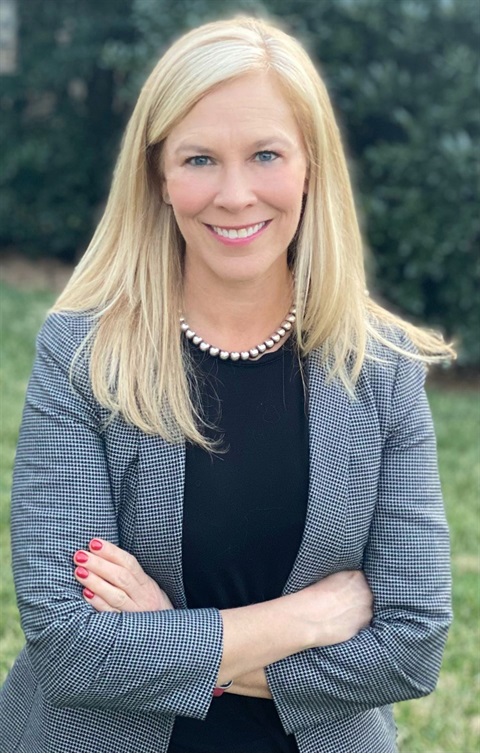Fast Five with Alyson Craig
Published on March 14, 2024

Alyson Craig serves as the director for the Charlotte Planning, Design & Development Department. She joined Team Charlotte in 2018 as the deputy director of the planning department. She oversees initiatives like the 2040 Comprehensive Plan and Unified Development Ordinance. In this month’s Fast Five, learn more about her work and, in honor of Women’s History Month, a moment of women’s history she passes along to her daughter.
Which part of the organization do you lead?
I lead the Planning, Design & Development Department. I am responsible for overseeing department initiatives that include the Charlotte 2040 Comprehensive Plan and Unified Development Ordinance implementation; regional transportation planning; long-range planning; land development permitting; tree canopy plans and policies; historic districts; urban design; annexations; and the rezoning process. I also provide oversight to the city’s One-Stop Shop initiative that created a multi-department collaborative approach to land development permitting that opened in 2020 as the CLT Development Center.
Why did you decide to work for the City of Charlotte?
I have worked in the private sector as a consultant and real estate developer, for all different levels of government, and in academia where I taught classes and led a graduate program. Understanding planning and land use from all these different perspectives helps me better tackle tough issues, but my heart is in public service. I was excited to join Team Charlotte as it was an incredible opportunity and a huge responsibility to play such an important part in shaping Charlotte’s future.
What is the biggest organizational priority you’re working on right now?
We have a lot going on as a department right now, so it is tough to pick one thing! What I would like to highlight is the great deal of energy that is focused on the implementation of the Charlotte 2040 Comprehensive Plan and Unified Development Ordinance (UDO).
The Charlotte Future 2040 Comprehensive Plan defines the city’s comprehensive vision for growth over the next 20 years and establishes a planning framework to align and guide future planning efforts. The next step in implementing the comprehensive plan is Community Area Planning, which provides more detailed strategies for growth within the city’s 14 sub-geographies. This week, we released three significant deliverables, including comments from prior engagement, a draft policy map and the policy map manual, which marked the conclusion of phase two of a five-phase, two-year process for Community Area Planning.
We are also continuing to evaluate the UDO, a key initiative to implementing the Charlotte 2040 Comprehensive Plan, and how the new regulations are improving Charlotte’s housing supply; tree canopy; and mobility options and adding needed infrastructure through development. With such a major overhaul to modernize our regulations, we know we will have text amendments over the next year or so to make sure our regulations achieve our vision.
What is your favorite part about working for the City of Charlotte?
First and foremost, the people. I am fortunate to have a department full of talented individuals dedicated to planning for Charlotte’s future. The work can be challenging at times, but we love what we do and working together. However, we cannot plan alone! I also enjoy working across the organization with all the city departments and our community to tackle the tough issues related to growth.
What is your favorite restaurant in Charlotte?
With a house full of children, I have spent many, many meals with Brixx, Bad Daddy’s and Cowfish, which are always good. However, on date night I like to check out new restaurants. Most recently I’ve tried Restaurant Constance, which was truly impressive, and I am looking forward to Leluia Hall and MAS openings.
BONUS QUESTION: March is Women’s History Month. Is there a person or historical moment that has impacted you as a leader?
Reflecting on the recent primary elections, many people think about the 19th Amendment allowing women to vote as a pivotal one for women’s history, which it was, but it wasn’t until decades later that Black women had these same rights. From local issues regarding funding for public transit, affordable housing, and schools, to state and national issues regarding women’s reproductive rights, it’s so important to remember women didn’t always have the opportunity to influence these important outcomes. I take my daughter to vote with me to impress how important it is for women to have a voice in issues that matter to us.